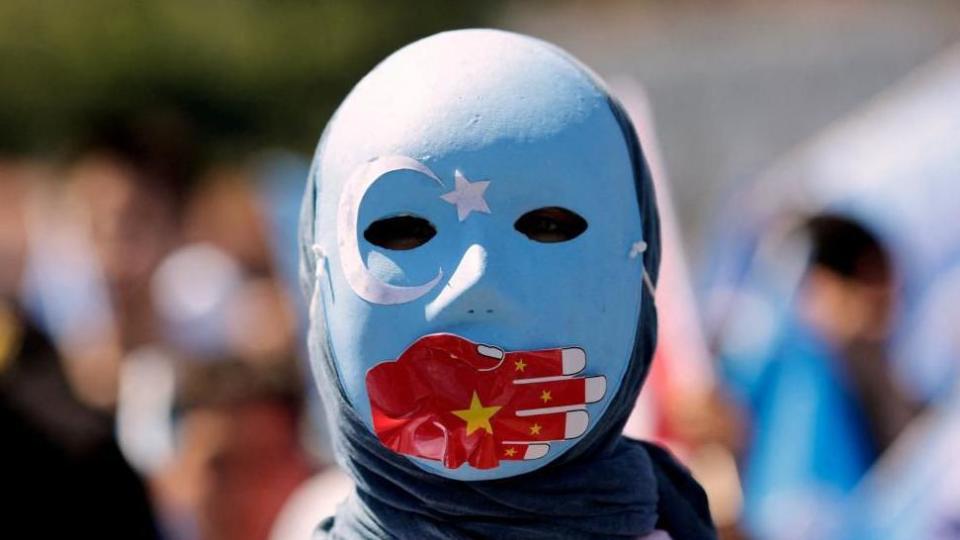China has changed the names of hundreds of villages in the Xinjiang region in an attempt to erase Uyghur Muslim culture, Human Rights Watch (HRW) says.
According to a report by the group, hundreds of villages in Xinjiang were replaced between 2009 and 2023 with names related to Uighurs’ religion, history or culture.
Words like ‘sultan’ and ‘shrine’ are disappearing from place names – replaced by terms like ‘harmony’ and ‘happiness’, according to the study, which is based on China’s own published data.
The Chinese embassy in London denied the allegations.
In recent years, Chinese authorities have radically reformed society in Xinjiang in an effort to assimilate the Uyghur minority population into mainstream Chinese culture.

Researchers from HRW and the Norway-based organization Uyghur Hjelp studied the names of villages in Xinjiang from the website of China’s National Bureau of Statistics over a 14-year period.
They found that the names of 3,600 of Xinjiang’s 25,000 villages had been changed during this period.
While the majority of these name changes “seem commonplace,” HRW says, about a fifth (or 630 changes) remove references to Uyghur religion, culture or history.
Words full of meaning for China’s Uyghur people, including Hojaa title for a Sufi religious teacher, and political or honorific titles such as Sultan And to beg – have been replaced by words. HRW’s claims reflect the “recent ideology of the Chinese Communist Party,” including “harmony” and “happiness.”
In one example highlighted in the report, Aq Meschit (“white mosque”) in Akto County, a village in southwestern Xinjiang, was renamed Unity Village in 2018.
A growing body of evidence points to systematic human rights abuses against the country’s Uyghur Muslim population. Beijing denies the accusations.
Most Uighur Muslims in China live in the northwest of the country, in areas such as Xinjiang, Qinghai, Gansu and Ningxia.
In a statement to the BBC, a spokesperson for the Chinese embassy in London denied the allegations.
“People of all ethnic groups enjoy freedom of religious belief under the law. The languages and cultures of the Uighurs and other ethnic minorities are protected and promoted,” they said.
There are approximately 20 million Muslims in China. Although China is officially an atheist country, authorities say they are tolerant of religious freedom.
However, observers say they have witnessed a crackdown on organized religion across the country in recent years.
Although the renaming of towns and cities appears to be ongoing, most place names changed between 2017 and 2019, according to HRW.
The group claims this coincides with an escalation of hostilities against the Uighur population in Xinjiang.
China has in the past used the threat of “violent terrorism, radicalization and separatism” to justify the mass detention of the country’s Uyghur minority population.
Maya Wang, acting China director at Human Rights Watch, said: “Chinese authorities have changed hundreds of village names in Xinjiang from names with rich meaning for Uyghurs to names that reflect government propaganda.
“These name changes appear to be part of the Chinese government’s efforts to erase the cultural and religious expressions of Uighurs,” she added.
The investigation follows a report published last year in which HRW accused the Chinese state of closing, destroying and repurposing mosques in an effort to curb the practice of Islam in China.






